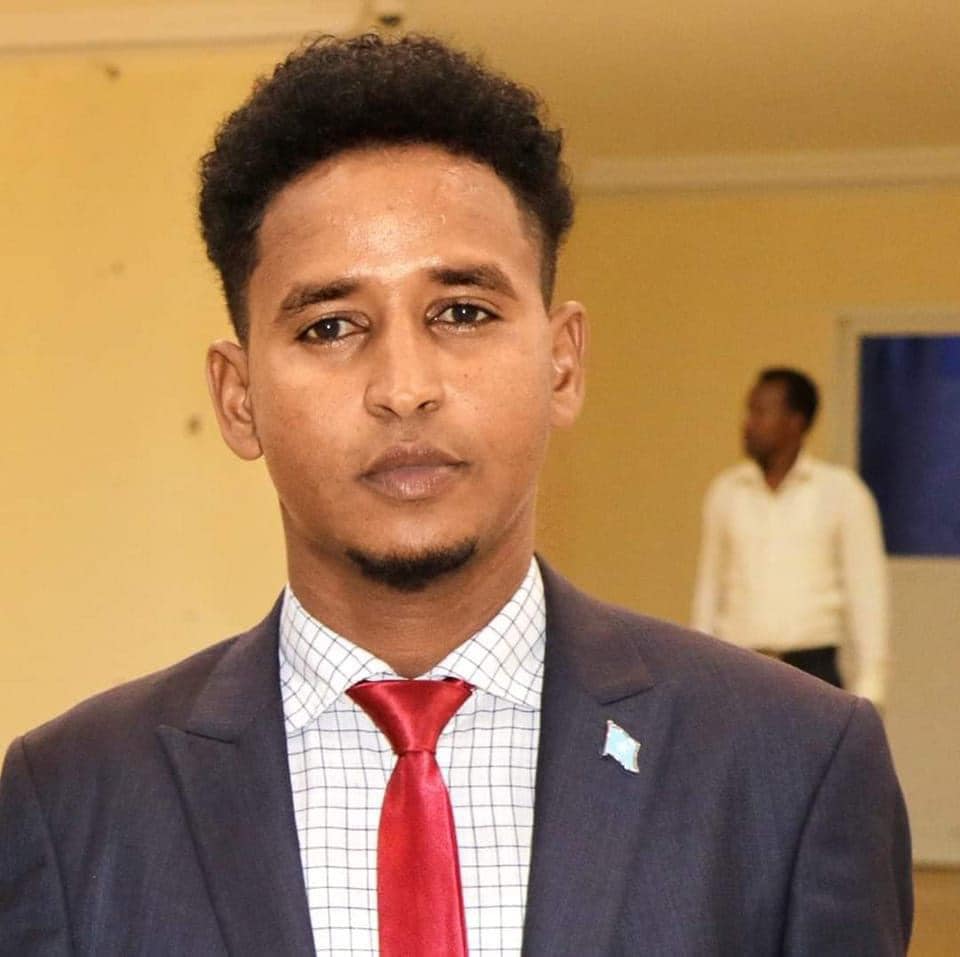MOGADISHU – The Somali Journalists Syndicate (SJS) condemns the restrictions imposed on senior state media journalist Abdulkadir Isse Ali’s reporting on Somali military court activities. This restrictive and threatening behavior against journalists’ labour rights continues to affect numerous journalists and is part of a series of recent violations against the press in Somalia.
On Saturday, 06 July, Somalia’s Ministry of Information, under orders from Deputy Minister of Information, Abdirahman Yusuf Al-Adaala, blocked a report filed by senior journalist Abdulkadir Isse Ali on a court hearing involving members of the National Intelligence and Security Agency (NISA). The hearing concerned the shooting death of a 14-year-old schoolboy on 12 April 2024, in Mogadishu’s Garasbaaley neighborhood.
According to Abdulkadir Isse Ali, the Deputy Minister Al Adaala, who manages the government radio and television social media accounts, removed the journalist’s access to these accounts – particularly the SNTV Facebook page – and further restricted his access to the Ministry of Information building. Abdulkadir later posted his full report on his personal Facebook page, which has 452K followers, and on the court’s Facebook page, which has 277K followers. Later that evening, SNTV published only video clips from the court hearing on its Facebook page, edited to remove Abdulkadir’s narrative report causing furious reaction in the comments.
Abdulkadir Isse Ali has been covering the military court for the past seven years.
The pressure on Abdulkadir Isse Ali is not only about his reporting. He told the SJS that his salary had been suspended for the past five months, and when he complained, ministry officials informed him that the Deputy Minister of Information had authorized the suspension without any further explanation.
“They blocked my access to the Ministry, and my user IDs at the state media, especially Radio Mogadishu and SNTV,” Abdulkadir Isse Ali told SJS. “They have also suspended my salary for the last five months, which is my basic right.”
The journalist took to social media to reveal these incidents to the public. He also spoke on allegations of corruption involving the celebration of the 64th anniversary of Somalia’s national Independence Day on 1 July.
In a Facebook post on 1 July, Abdulkadir stated, “While the government made huge preparations in mobilizing resources to mark the national day, there were no media professionals who could at least translate this historical event given the wealth and manpower spent by the government.”
He alleged that individuals at the Ministry of Information were trying to use the coverage of the national day celebrations as “a money-making drive”.
“There were several attempts by Deputy Minister Abdirahman Al-Adaala to fire me from my job and put someone else in my position as the reporter covering the court, but these demands were rejected by the court officials,” Abdulkadir told SJS.
Two other journalists currently working at the state media, who requested anonymity for fear of losing their jobs, told SJS that editors and producers at both SNTV and Radio Mogadishu were instructed not to broadcast any news assignments from Abdulkadir Isse. “They say Abdulkadir is critical of the Deputy Minister of Information. Every report sent to the newsroom of SNTV and Radio Mogadishu is monitored by Al-Adaala before it is broadcast or posted on social media. Without his approval, you cannot do anything,” one of the journalists said.
Abdulkadir is not the only journalist at the state media who faces similar intimidation.

Last Thursday, former SNTV reporter Mohamud Abdinasir Soofeysane broke his silence to narrate how he was sacked and his credentials revoked in May 2021 when he was assigned to report from the office of the Prime Minister. “When then-Minister of Information Osman Dubbe appointed me to cover the office of the Prime Minister for the state media on 4 May 2021, Deputy Minister Al-Adaala blocked me and told me not to bother going to report there,” Soofeysane wrote on his Facebook page, expressing solidarity with Abdulkadir Isse Ali.
Meanwhile, a Gedo-based SNTV reporter told SJS that he had been denied his salary for the past two years despite promises of payment. “When I complained, I was told to speak to Al-Adaala, but he never responded to me when I contacted him about my payment. If I raise my voice, I fear he will fire me,” the journalist said.
On 13 March, journalist Sugaal Moalim Mohamud, who is employed by Somalia’s government-owned media, was suspended from his job and his salary cut in retaliation for expressing concerns that “if the Somali National Army (SNA) does not get real leadership and change, all the successes achieved in the past will end in failure similar to what happened in Caad, Camaara, and Shabeelow.”
“We knew that the Deputy Minister of Information, Abdirahman Al-Adaala, has long targeted independent journalists and press freedom unions such as SJS. However, what we are now witnessing is another level of intimidation, censorship, and threats against state media journalists who have sacrificed their lives to report from dangerous assignments,” said SJS Secretary General Abdalle Mumin.
“If these actions are not stopped and the Deputy Minister of Information is not held accountable, it will cause inevitable consequences for journalists who are struggling to carry out their professional careers in the country. This is not only a press freedom violation but also a violation of journalists’ labor rights and their human rights to work free from harassment and intimidation,” Mr. Mumin added.

Leave a Reply